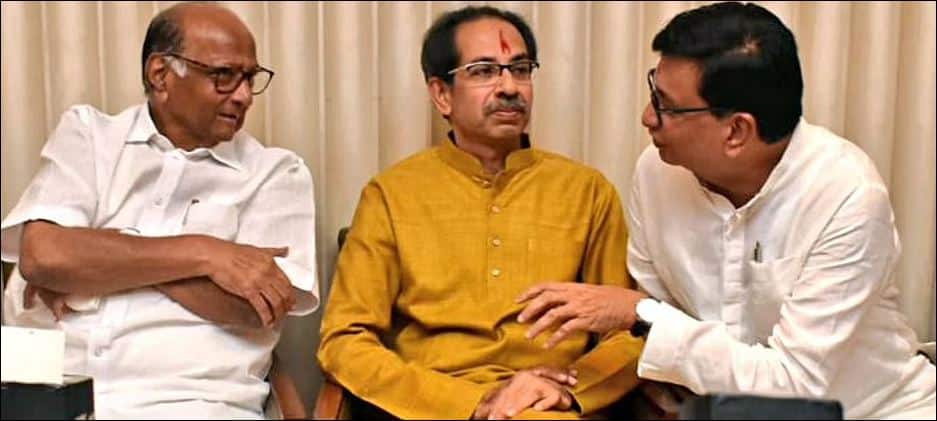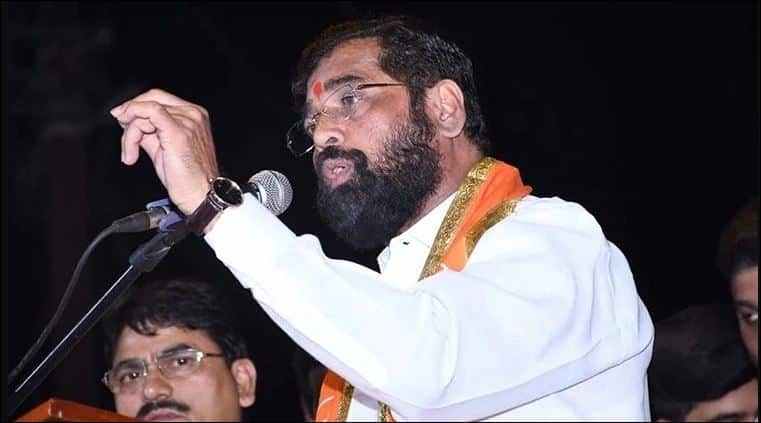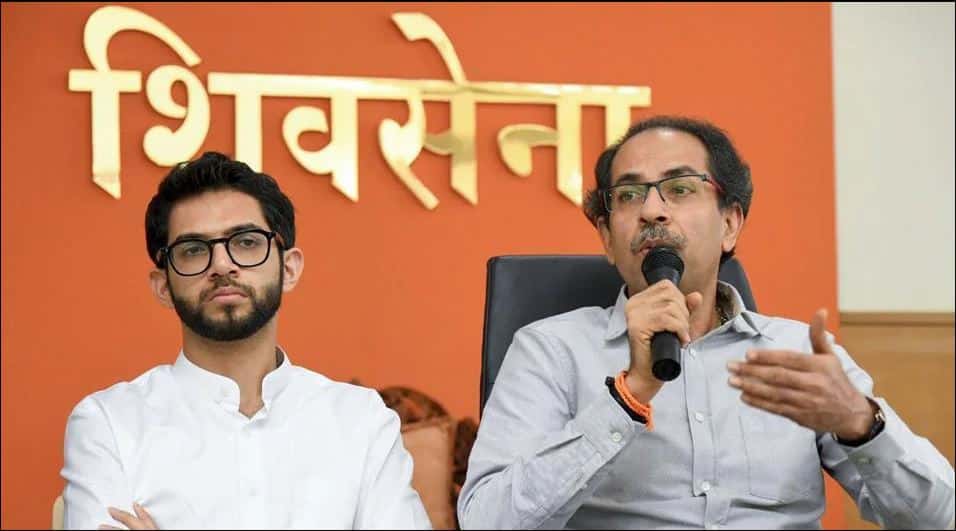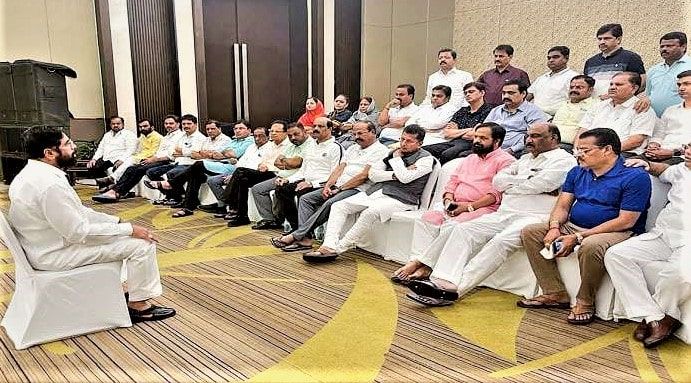Shiv Sena Saga, BJP and The Perils to Democracy
The ongoing feud in Shiv Sena raises quite a few questions on running a political party, the dubious attempts at government formation and the health of democracy. The Shiv Sena party is on the verge of a split, threatening to reduce the majority of the Maha Vikas Aghadi (MVA) government. The speculations are that the rebel group may support the Bharatiya Janata Party (BJP) which has always been in-waiting to form the government. This is a recurrent phenomenon recently being observed. It calls for a deeper analysis of the trend as it undermines democratic norms and practice.

There are four political parties involved in this political drama – Shiv Sena, the Indian National Congress (INC), the Nationalist Congress Party (NCP)and the Bharatiya Janata Party. In the last Assembly elections in 2019, BJP and Shiv Sena fought in an alliance and won. Owing to irreconcilable differences on the post of Chief Minister, Shiv Sena broke away from the alliance, joined hands with INC and NCP to form the government.

BJP felt let down by Shiv Sena accusing its ally of betrayal of confidence and understanding on the Chief Ministership. Shiv Sena, however, claimed that the post was promised to them. BJP since has been carrying a grudge against Shiv Sena as they feel that the mandate was given to the combined leadership and images of Prime Minister Narendra Modi and the incumbent Chief Minister Devendra Fadnavis.
Admittedly, there is not much to write home about Shiv Sena, the dramatis personae in the current episode. Shiv Sena proverbially “rose with the sword and is perishing with the sword.” Since its formative days, Shiv Sena used muscle power to drive its message home, whether it was about outsiders in Mumbai or the transactions by the estate and property dealers, they had to do it through Shiv Sainiks. It has been an ally of BJP for 25 odd years on a shared Hindutva platform, but as it was denied the Chief Minister post, it teamed up with INC and NCP.

Shiv Sena like other regional parties is run on dynastic succession, nepotism and local identity. Its organizing principles which leave much to desire became the cause of the current split. The number of Member(s) of the Legislative Assembly (MLA) led by Eknath Shinde complains of inaccessibility of the Chief Minister, undue influence of the family members, especially the son, Aaditya Thackeray. This may be an alibi for defecting from the party to form an alternative government. It may also be recalled that Shiv Sena was sought to be split before by Chhagan Bhujbal, Narayan Rane and the like. The split was then marginal as they could not muster enough support of MLAs. This time around, Eknath Shinde, perceived to be a mass leader, seems to have the requisite number to cause a legal split. So, the BJP supporters are claiming that the current problem is internal whereas the blame is on the external factor. Is it?

What should worry us deeply is the role of BJP which, as said before, has been grudging the breaking away of Shiv Sena from the winning alliance. Although BJP is quiet about this sudden dramatic development, Shinde has admitted in a video clip circulating around that a national party is helping them. The cat is out of the bag. No wonder the Shiv Sena rebel MLAs have been given a political sanctuary in Assam, a BJP-ruled state. Whatever may be the political culture of Shiv Sena, is it normal for any party to destabilize any government by splitting other parties, seducing away, browbeating, intimidating and kidnapping the MLAs! ED notices to most of the rebel MLAs is one such tactic.
Only recently, we have witnessed BJP forming the government in Bihar by breaking the pre-election alliance called Mahagathbandhan, splitting the Congress in Karnataka and then in Madhya Pradesh. Then also BJP claimed that it was the internal matter of Congress, but to everyone’s horror the rebel MLAs were all taken into the BJP-led government and even made ministers. This plainly amounts to betrayal of the peoples’ mandate, delegitimating the popular election. BJP so far is claiming to be innocent of the entire episode unfolding in Maharashtra politics. It could be so despite the hint given by Shinde.

In the interest of a healthy and value-based democracy, I have suggested in the television media that BJP should declare that it will not take the support of the rebel group to form the government. BJP supporters claim that the mandate in 2019 was to Shiv Sena and BJP alliance hence it is very much in order that they could form the government by splitting the former. This logic held water immediately after the election but not during the tenure of the government. Since government formation is based on the principle of majority of MLAs, post-poll alliances could be made to garner the number in case it is a fragmented verdict. It happens in many democracies. In Germany, two major adversarial parties have had alliances to form governments more than once. But once the government is formed, it is hardly upended by manipulation of parties or backdoor deals.
Democracy survives on political and organizing principles, and more important, standards set by politicians and parties. The British democracy, considered to be the oldest, is run by conventions not even a written Constitution. We have a progressive written-up Constitution comprising several principles. Yet the parties find ways to circumvent it, let alone setting standards for the next generation of leaders and political parties. This is where the danger lies. Unless BJP claiming to be the leading nationalist party is conscious of this democratic imperative, it could be highly harmful to India’s international image. The stark reality that India’s Unique Selling Proposition (USP) in world politics is its pluralism and democratic politics cannot be lost on our political leaders. The Maharashtra episode, controversial as it is since the elections, is a test case for building a sound democracy in the country.







